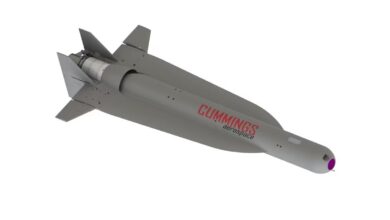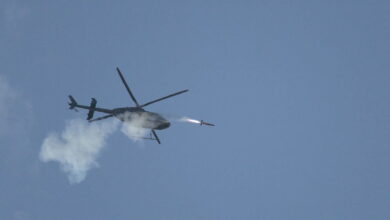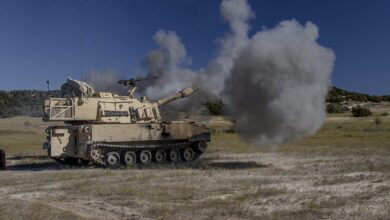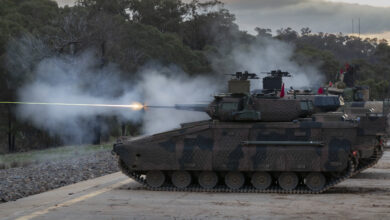Following two canceled replacement programs for the M2 Bradley infantry fighting vehicle, the US Army is making headway in developing its Mechanized Infantry Combat Vehicle.
The XM-30 combat vehicle, previously known as the Optionally Manned Fighting Vehicle before its redesignation in June 2023, is currently in its detailed design phase. It is expected to achieve Milestone B by the second quarter of fiscal year 2025, which would mark approval to enter the engineering and manufacturing development phase.
As a next-generation military platform, it is designed to have the option to operate with a crew or autonomously as it engages in close combat and delivers decisive lethality.
It will feature a modular open system architecture and is set to become the US Army’s “first ground combat vehicle designed using state-of-the-art digital engineering tools and techniques,” according to a Congressional Research Service report.
The XM-30 is intended to replace the service’s Bradleys that have been operational since 1981.
Five-Phased Program
The XM-30’s five-phased acquisition program began with market research and requirement development.
It was followed by the second phase, where a hybrid electric vehicle concept design was proposed by five firms: Point Blank Enterprises, Oshkosh Defense, BAE Systems, General Dynamics, and American Rheinmetall Vehicles.
For the third and fourth phases of detailed design and prototyping, General Dynamics and American Rheinmetall Vehicles clinched the contracts amounting to a combined total of $1.6 billion.
Finally, the combat vehicle is anticipated to reach its fifth phase of low-rate initial production and fielding in the first quarter of fiscal 2028, eventually leading to a decision for full-rate production by fiscal 2030.
Previous Efforts
There were two replacement efforts for the Bradleys: the Future Combat System (FCS) and the Ground Combat Vehicle (GCV) programs.
However, the FCS program, initiated in 1999, was aborted in June 2009 and the subsequent GCV program met the same fate in February 2014 due to delays, cost overruns, and shifting military strategy.












